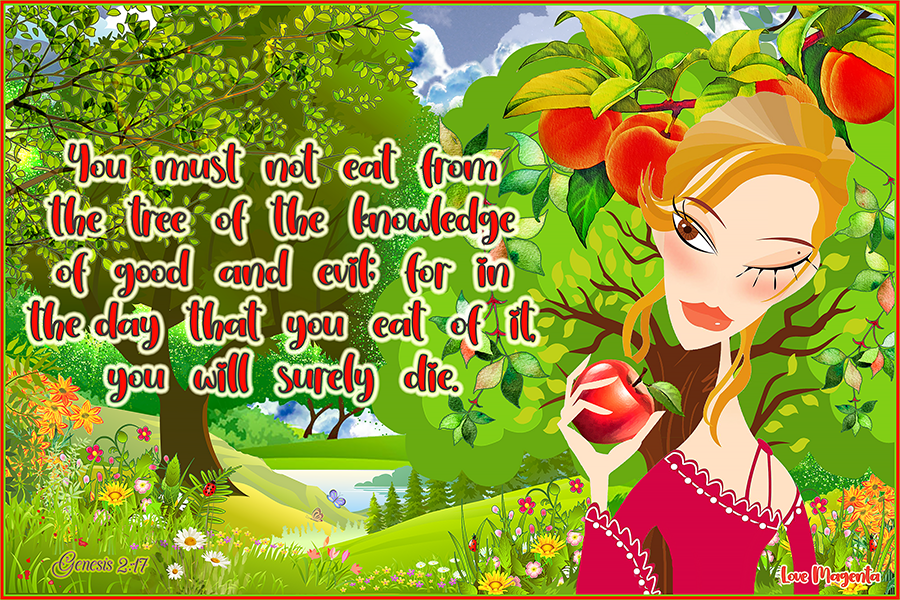.
• Gen 2:15-17 . .The Lord God took the man and placed him in the garden
of Eden, to till it and tend it. And the Lord God commanded the man, saying:
Of every tree of the garden you are free to eat; but as for the tree of
knowledge of good and bad, you must not eat of it; for in the day you eat of
it, you shall die.
In order for his maker's warning to resonate in Adam's thinking; it had to be
related to death as he understood death in his own day rather than death as
modern Sunday school classes construe it in their day. In other words:
Adam's concept of death was primitive, i.e. normal and natural rather than
spiritual.
As far as can be known from scripture, Man is the only specie that God
created in His own image, viz: a creature blessed with perpetual youth. The
animal kingdom was given nothing like it.
That being the case, then I think it's safe to assume that natural death was
common all around Adam by means of vegetation, birds, bugs, and beasts
so that it wasn't a strange new word in his vocabulary; i.e. God didn't have
to take a moment and define death for Adam seeing as how it was doubtless
a common occurrence in his everyday life.
Adam saw grasses spout. He saw them grow to maturity, bloom with
flowers, and produce seeds. He watched as they withered, became dry and
brittle, and then dissolve into nothing. So I think we can be reasonably
confident that Adam was up to speed on at least the natural aspects of death
and fully understood that if he went ahead and tasted the forbidden fruit
that his body would lose its perpetual youth and end up no more permanent
than grass.
In other words; had Adam not eaten of the forbidden tree, he would've
remained in perfect health but the very day that he tasted its fruit, his body
became infected with mortality, i.e. he lost perpetual youth and began to
age; a condition easily remedied by the tree of life but alas, Adam was
denied access to it.
Adam was supposed to die on the very day he tasted the forbidden fruit and
he did; only in a natural way-- subtly and not readily observed rather than
instantly. The thing is: mortality is a lingering, walking death rather than
sudden death, i.e. mortality is slow, but very relentless: like Arnold
Swarzenegger's movie character "The Terminator"-- mortality feels neither
pain nor pity, nor remorse nor fear; it cannot be reasoned with nor can it be
bargained with, and it absolutely will not stop-- ever! - until you are ready
for burial.
"A voice said: Shout! I asked: What should I shout? Shout that people are
like the grass that dies away. Their beauty fades as quickly as the beauty of
flowers in a field. The grass withers, and the flowers fade beneath the breath
of The Lord. And so it is with people. The grass withers, and the flowers
fade, but the word of our God stands forever." (Isa 40:6-8)
_

